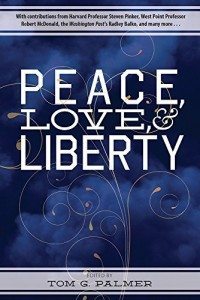Literature
LITERATURE
For five years in a row, Students For Liberty has partnered with the Atlas Network to publish a variety of books to help student groups and student leaders enhance their understanding of the philosophy of liberty while promoting the message of freedom on campus.
Self-Control or State Control?
Who should determine the course of our lives? There is no shortage of people who aim to control others, imposing their will and restricting choice through the force of government. A new book edited by Dr. Tom G. Palmer, Atlas Network’s executive vice president for international programs, explains how choosing personal responsibility allows us to regain control over our own lives. Titled Self-Control or State Control? You Decide, the book features essays by John Tierney, Lisa Conyers, Jeffrey Miron, and several more that delve into the relationship between freedom and responsibility, their philosophical and scientific underpinnings, and the practical value of self-control.
“Each of us faces a great choice,” Palmer writes in the first chapter. “Shall I quietly accept the system of state control or shall I stand up for self-control?”
DOWNLOAD NOW
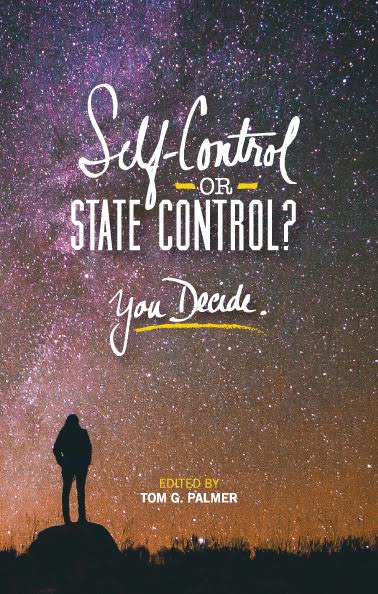
Liberty 101
Liberty 101 is an upcoming online course produced together by Students For Liberty and Learn Liberty in which you will learn about the principles of a free society from a libertarian perspective. This pamphlet introduces the concepts that Liberty 101 will cover in greater depth through video lectures by professors, supplementary readings, and assignments designed to familiarize you with the principles of libertarianism and why liberty is essential for human flourishing. While the full course won’t be available until October, you can read the pamphlet now for a preview.
DOWNLOAD NOW
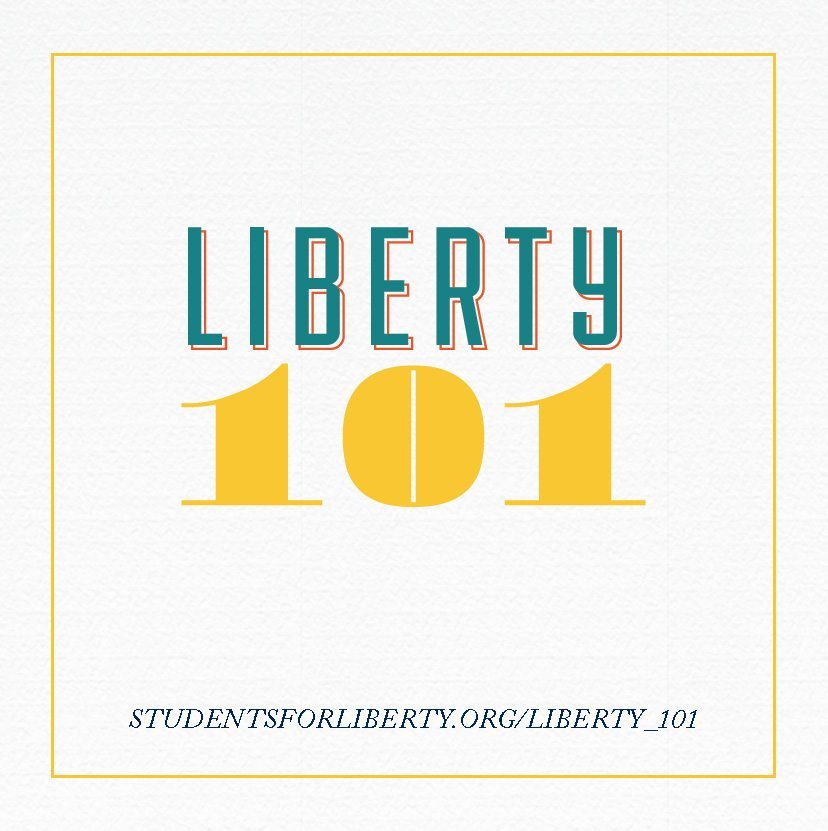
The Economics of Freedom
“There is only one difference between a bad economist and a good one: the bad economist confines himself to the visible effect; the good economist takes into account both the effect that can be seen and those effects that must be foreseen.”
– Frederic Bastiat
Students For Liberty’s first publication features a collection of Bastiat’s best essays including such classics as “What is Seen and What is Not Seen” and “A Petition”, along with contemporary essays by Nobel Laureate F.A. Hayek and Atlas Foundation Vice President Tom G. Palmer. In the fall of 2010 we printed 30,000 of these books and gave them to pro-liberty student groups for mass distribution on college campuses.
DOWNLOAD NOW
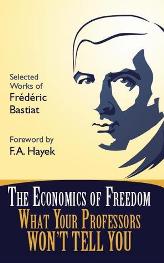
The Morality of Capitalism
“Capitalism is a source of value. It’s the most amazing vehicle for social cooperation that has ever existed. And that’s the story we need to tell. We need to change the narrative. From an ethical standpoint, we need to change the narrative of capitalism, to show that it’s about creating shared value, not for the few, but for everyone. If people could see that the way I see it, people would love capitalism the way I love it.”
– John Mackey, Co-Founder and Co-CEO of Whole Foods Market
In the fall of 2011 we distributed hundreds of copies of The Morality of Capitalism, What Your Professors Won’t Tell You to student groups around the world. This second Students For Liberty publication combines the writings of various philosophers, economists, Nobel Prize winners, and entrepreneurs to make the case that not only do “markets deliver the goods” as Vernon Smith says, but that a true free market system is a prerequisite for a just, prosperous, and cooperative society.
DOWNLOAD NOW
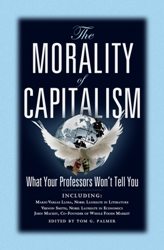
After the Welfare State
“Young people today are being robbed. Of their rights. Of their freedom. Of their dignity. Of their futures. The culprits? My generation and our predecessors, who either created or failed to stop the world straddling engine of theft, degradation, manipulation, and social control we call the welfare state.”
– Tom G. Palmer
The third in our series of publications, After the Welfare State, explains the history and motivations of the modern welfare state, examines its current crisis, explains how it is used as an immoral tool of state control and subjection, and proposes possible alternatives for providing mutual aid in a world after government imposed welfare programs have run their course.
DOWNLOAD NOW
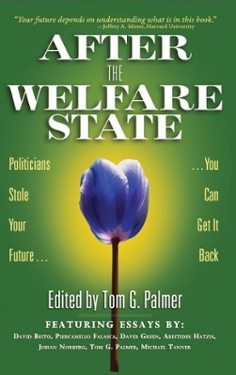
Why Liberty
Launched in Fall 2013, Why Liberty departed from our previous strategy of focusing on specific areas and instead took a broad and multidisciplinary approach to introducing the ideas of liberty. It focuses not just on political theory but also on liberty through the lens of culture, entrepreneurship, health, art, technology, philosophy, and the transformative power of freedom. Edited by Dr. Tom G. Palmer, the book features articles from experts in the fields of policy, academia, business, media, and student organizing. This collection emphasizes students talking to students, showing that freedom is not an old antiquated idea, but a dynamic and liberating force with the power to change the world. It is time for young people to stand up and say “this is what we believe in.”
DOWNLOAD NOW

Peace, Love, & Liberty
Peace, Love, & Liberty shows that libertarianism is the philosophy of peace and how our ideas are making the world a safer place. Drawing on the disciplines of history, philosophy, poetry, literature, and psychology, Peace, Love, & Liberty shows that peace is possible and how we can achieve it.
DOWNLOAD NOW
